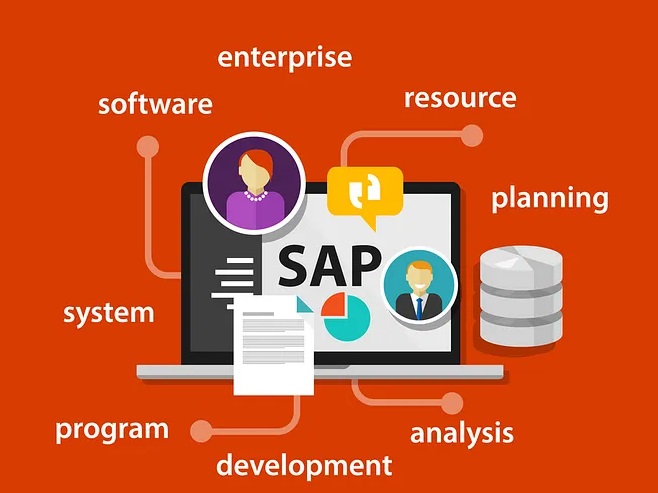Decoding SAP: Navigating Through System Types and Alternatives for Business Excellence
Every organizations need efficient systems and software to streamline their operations, manage resources, and stay competitive. SAP (Systems, Applications, and Products in Data Processing) has long been a frontrunner in providing comprehensive enterprise solutions. However, there are various SAP system types and alternative solutions that cater to diverse business needs. In this blog post, let’s delve into the different types of SAP systems that SAP caters-
Types of SAP Systems:
1. SAP ERP (Enterprise Resource Planning):
- SAP ERP is a flagship product designed to integrate core business functions like finance, procurement, HR, production, and sales.
- It offers robust features for large enterprises seeking end-to-end process automation.
2. SAP S/4HANA:
- S/4HANA is SAP's next-gen ERP suite built on the in-memory database platform SAP HANA.
- It provides real-time analytics, a simplified data model, and an intuitive user interface.
3. SAP Business Suite:
- This encompasses various applications like SAP CRM, SAP SRM, and SAP SCM.
- Businesses can choose specific modules to complement their existing SAP ERP or implement them as standalone solutions.
4. SAP Business ByDesign:
- A cloud-based ERP tailored for small and mid-sized businesses.
- Offers finance, HR, CRM, and supply chain management capabilities.
5. SAP Business One:
- Geared towards SMEs, SAP Business One is an ERP system with modules for finance, sales, inventory, and production.
6. SAP BW/4HANA:
- A data warehousing solution for advanced analytics and reporting.
- Ideal for businesses seeking to consolidate and analyze data efficiently.
7. SAP Ariba:
- Focused on procurement and supply chain management.
- Helps manage supplier relationships, procurement processes, and expenses.
8. SAP SuccessFactors:
- A cloud-based HCM solution covering talent management, recruiting, and employee development.
9. SAP Concur:
- Specializes in travel and expense management, invoice processing, and vendor payments.
10. SAP Hybris (SAP Customer Experience):
- Offers e-commerce, marketing, sales, and service solutions to enhance customer engagement.
Why Consider Alternatives?
While SAP is renowned for its robustness and versatility, it may not be the perfect fit for every organization. Several reasons drive businesses to seek alternatives:
The Need for Alternatives: While SAP systems offer a wide range of capabilities and are well-suited for many large enterprises, they may not be the best fit for every organization. Some reasons why businesses consider alternatives include:

Alternatives to SAP Systems:
1. Oracle ERP Cloud:
- Oracle offers a comprehensive suite of cloud-based ERP solutions that include finance, procurement, supply chain management, and more.
- It's a strong alternative for organizations seeking robust financial management and scalability.
2. Microsoft Dynamics 365:
- Microsoft's Dynamics 365 suite includes ERP and CRM applications that integrate seamlessly with other Microsoft products.
- It's an attractive option for businesses already using Microsoft technology.
3. NetSuite (Oracle):
- NetSuite is a cloud-based ERP and CRM solution ideal for small to mid-sized businesses.
- It offers a unified platform for financial management, e-commerce, and CRM.
4. Infor ERP:
- Infor provides industry-specific ERP solutions, including cloud-based options like Infor CloudSuite.
- It's known for its flexibility and tailored industry solutions.
5. Workday:
- Workday specializes in cloud-based human capital management (HCM) and financial management.
- It's a great choice for organizations prioritizing HR and talent management.
6. Epicor:
- Epicor offers ERP solutions designed for manufacturing, distribution, retail, and services industries.
- It's known for its scalability and industry-specific features.
7. Salesforce:
- Salesforce provides cloud-based CRM solutions with additional capabilities for sales, service, marketing, and analytics.
- It's an excellent choice for businesses focused on customer relationship management.
8. Sage Intacct:
- Sage Intacct is a cloud-based financial management and accounting solution suitable for growing businesses
- It emphasizes automation and scalability.
Conclusion:
Choosing the appropriate system for your organization is a critical decision, be it an SAP system or an alternative solution. Ultimately, your unique business goals and priorities should guide this selection process. Although SAP systems stand out as a formidable choice for numerous large enterprises, it's crucial to acknowledge the existence of alternatives that cater to the diverse needs of modern businesses. The key lies in evaluating your organization's specific requirements, budget constraints, and long-term objectives when exploring SAP alternatives. Whether your focus is on cost-efficiency, scalability, industry-specific features, or embracing cloud-based solutions, there is likely an alternative perfectly aligned with your business objectives. Opting for the right solution ensures your organization thrives in today's competitive landscape while efficiently managing its core functions. At Bestapps Business Solutions Pvt.Ltd, we are dedicated to assisting you in making informed decisions that optimize your operations and foster sustainable growth.